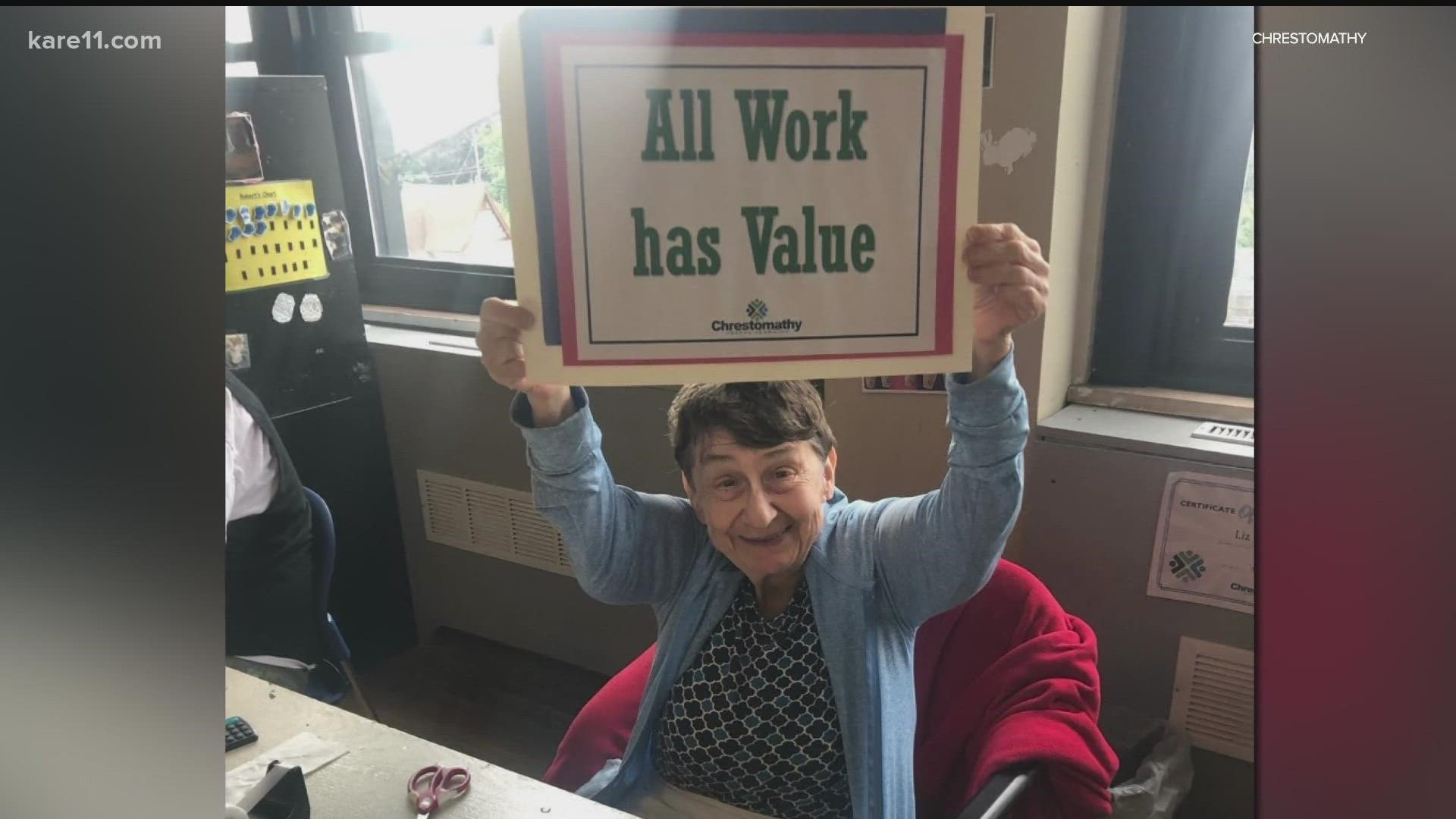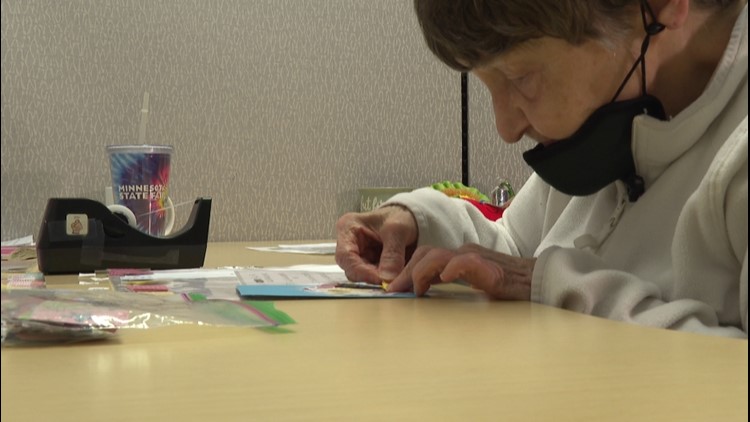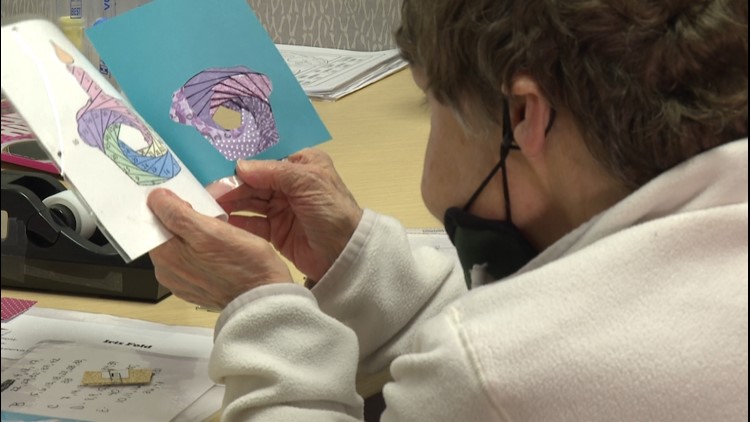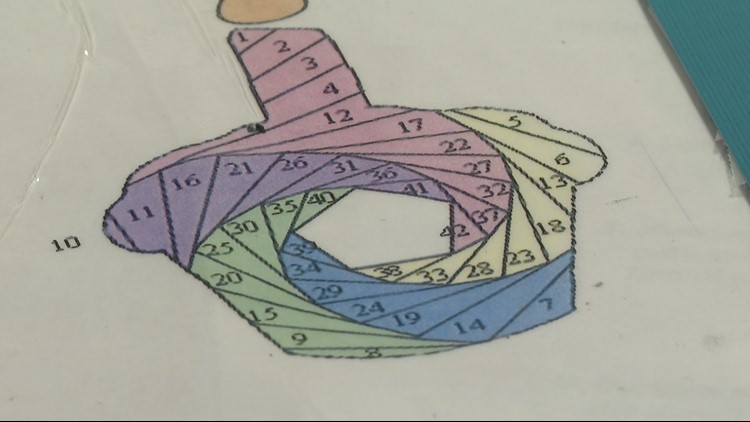MINNETONKA, Minn. — Some people dread heading to work, but not Liz Eggers. As she walked into the office on a cold day in March, she said she was excited for a couple things.
"Getting my work done and exercising," Eggers said. "I like my job."
At Chrestomathy, a nonprofit with a location in Minnetonka, Eggers does both. There are structured activities like exercising, meditation, and socialization, and there's also a chance to make some money. Eggers takes part in a program where she helps produce colorful greeting cards through layering strips of paper, a technique known as iris folding. Chrestomathy sells the cards, and Eggers earns a piece rate, or a wage based on her productivity.
Chrestomathy clients create cards
While focused on her work, Eggers is quick to share how she spends her money: her 3-and-a-half-year-old Netherland Dwarf rabbit, Peanut.
"I usually spend my money on his supplies. He needs a lot of stuff like bedding, hay, which he’s going through a lot," she said. "Peanut comes to work sometimes with me."
Eggers says it's a joy to take care of her pet.
"It gives me responsibility," she said.
It's an opportunity Eggers doesn't take for granted, especially after COVID. In Minnesota, day service facilities for adults with disabilities were closed from March 29, 2020 through May 30, 2020. Day services weren't categorized by Minnesota Department of Human Services as an essential service, creating challenges for people like Eggers who relied on them for structure and activity.
When day centers were allowed to reopen, like many industries, there were limitations and protocols to ensure safety. Day services were required to operate at a 50% of licensed capacity; create and maintain plan for masks, and limit times for service delivery (e.g. three rather than six hours per day); follow CDC and MDH guidelines on testing and quarantine.
A spokesperson for DHS said they "looked at the impact on people’s lives and worked to minimize service disruption," adding options for remote service delivery to support people accessing services safety during the pandemic.
But tasked with navigating a new territory, services like Chrestomathy were forced to furlough staff, and many haven't recovered. Eggers wasn't able to come back for over a year.
Eggers' residential group home offered some nightly activities in the meantime, and starting in July of 2020, she was able to participate in a daily one-hour remote session with Chrestomathy. Still, she said it wasn't the same.
"Because [at Chrestomathy] was making money, and I had friends here," she said.

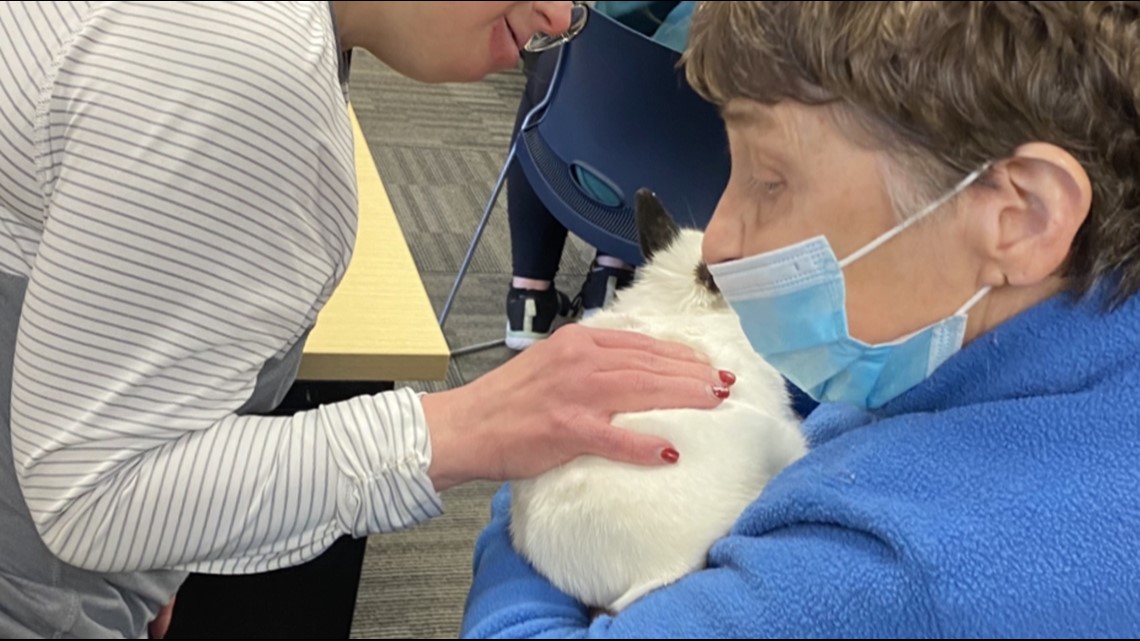
Chrestomathy program director Nathan Fryett said they're dealing with mixed emotions. Many clients returned to their center had lost physical abilities or were out of shape, because for months, they had nowhere to go and were sitting at home.
"There is a sadness, because there’s so much uncertainty," Fryett said. "There are so many people that are still waiting to come back that we simply can't serve yet. There’s uncertainty as to when we can."
Fryett said right now, Chrestomathy's Minnetonka location is currently serving 22 people. Their facilities have the ability to serve total of 50 individuals, but they need 20 more staff members.
"It was necessary to furlough people because right as the pandemic hit, everything just had to shut down real quickly, and we simply weren’t able to support the large number of staff that we had previously," he said. "So some people left just simply out of necessity."
One the other hand, he feels lucky that they're able to welcome back the couple dozen clients and see their smiling faces again.
"There's a joy -- you can't help but to get swept up in it," he said.

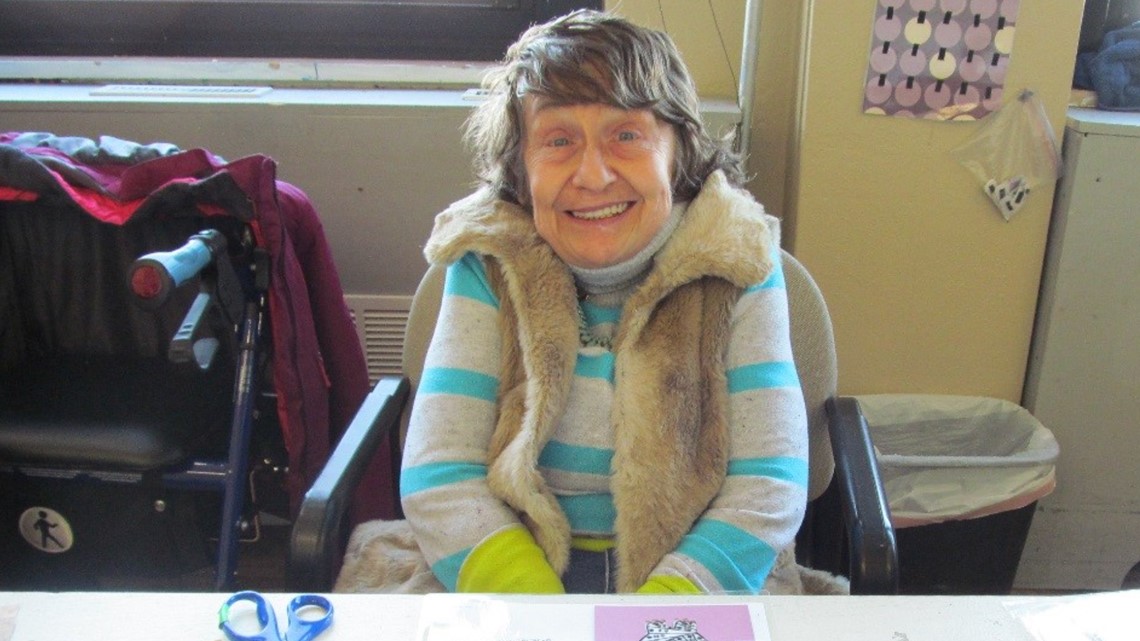
RELATED: By age 5, Lexi Dietz had learned to write & eat with her feet. Now, she's preparing for college
Watch the latest coverage from the KARE11 Sunrise in our YouTube playlist:

